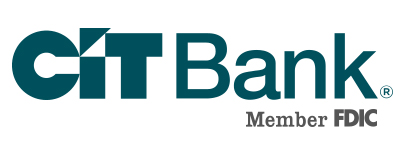Pros:
- High interest rates on accounts
- Business accounts offered
- Most accounts do not have fees
- Low opening required amounts
Cons:
- Cannot open all accounts online
- Limited CD term lengths opened online
- Only one savings account offered
- Highest interest rate requires a large sum
Pros:
- Custodial accounts available
- Competitive interest rates on accounts
- Wide range of CDs offered
- No monthly fees
Cons:
- High opening required amounts
- Long transaction periods
- Hard to access custodial account money
- High early withdrawal fees for CDs
The Radius Hybrid checking account offers competitive interest rates. You earn the competitive interest rate on any balance over $2,500. The savings account offers competitive interest rates as well. You earn higher interest rates on balances over $25,000. The interest rate under $25,000 is still competitive, just a slightly lower rate.
Radius Bank offers a variety of business accounts. Four different checking accounts are available. The accounts vary in benefits. This allows you to find the best fit for your business. A money market account and CDs are available for businesses also.
Most Radius accounts do not have monthly fees. The only account that has a monthly fee is the Essential checking account. That fee is $9 a month. After you make the opening required deposit, there is no required amount to keep in Radius Bank accounts.
The Radius savings account and two checking accounts only require $100 to open. The basic checking account only requires $10 to open. There are three CDs you can open online, the one-year, 18-month, and the three-year. Each of those CDs only require $500 to open. Open different CD term lengths at branch locations. Those CDs require either $500 or $1,000 depending on the term.
At this time, only a few Radius accounts are available to open online. Three Radius checking accounts can be opened online. The Radius High-Yield savings account and CDs can also be opened online. To open a business account, visit their financial center in Boston, Massachusetts.
Only three Radius Bank CD terms are available to open online. The CDs include a 12-month, 18-month, and three-year CD. Each CD only requires $500 to open. The interest rate on the CDs are competitive with other online-only accounts.
Only one savings account is available through Radius Bank. They do not offer a money market account. There is no monthly fee for the savings account. The opening amount required is $100. You can request an ATM card for this savings account. Federal regulations only allow six transactions per statement cycle.
To earn the highest interest rates for the Radius savings account, you must have $25,000 in the account. Any amount over $10 earns interest. Those rates are low; similar to typical bank rates. Having $2,500 in the account will earn much higher rates. Rates for balances over $2,500 are good but still less than the interest you earn if you have over $25,000. To earn interest on your Radius checking account balance, you must have $2,500 in the account. Any amount less does not earn interest.
CIT Bank offers custodial accounts. You open the account in your child's name, but you control the account until the child is eighteen years old. There are no limits on how much you deposit into the account. There are tax benefits to having a custodial account.
The interest rates for CIT Bank accounts are very competitive. The high yield savings account rates are much higher than your typical bank. CIT Bank rates are even higher than other online-only accounts. CD rates are also competitive.
CIT Bank offers a variety of CDs including regular term CDs, no-penalty CD, jumbo CDs, and Ramp Up CDs. The no-penalty CD is an eleven-month CD. You earn interest on a CD with the options to withdraw the money at any time after the first seven days. The Ramp-Up CDs allow you to get a better rate once during the term of the CD. With the Ramp-Up Plus CD, you can get a better rate and make a deposit once during the term of the CD.
CIT Bank does not have a fee to open any of their banking accounts. There are no monthly maintenance fees for any of their banking accounts either.
The required amount to open a CD with CIT Bank is high. The minimum deposit for CDs is $1,000, including custodial accounts. Jumbo CDs require $100,000 to open. Other CDs require either an opening balance of $25,000 or $50,000. The minimum deposit to open a savings account is $100.
Transferred funds are not available until five to ten business days after the deposit is made. Deposits transferred from an external account are available after five days. Deposits mailed take ten days after the deposit is received.
Any money deposited into a custodial account is an irrevocable gift. You cannot withdraw or transfer the money from the account. It cannot be used for any purpose that doesn't directly affect the child listed on the account. Once the child reaches eighteen years of age, the money can be accessed.
CIT Banks fees for early CD withdrawals are higher than other banks. The fee for withdrawing money early from a CD with a term of more than three years is twelve months of interest. The fee for terms from one to three years is six months interest. Fees for CD terms up to one year are three months interest.


